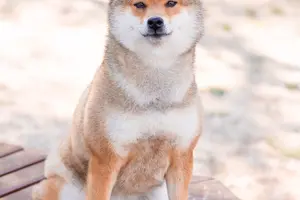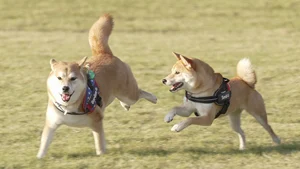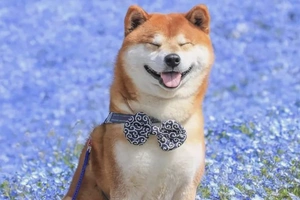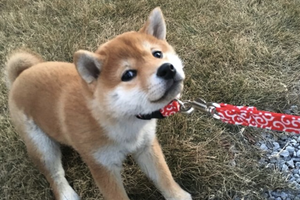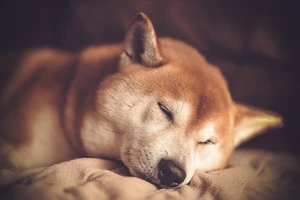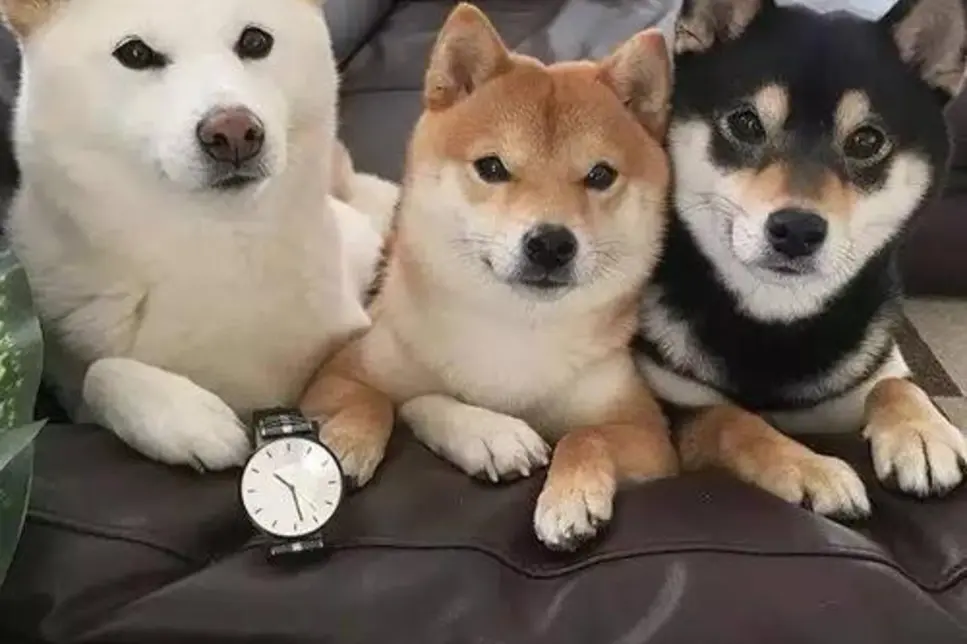
Shiba Inus are a popular breed of dog known for their loyalty, intelligence, and spunky personalities. Originally from Japan, Shiba Inus have gained popularity worldwide due to their unique appearance and charming demeanor. In this comprehensive guide, we will explore the different types of Shiba Inus, their history, characteristics, and temperament, as well as provide tips on how to care for them, their health concerns, and how to choose the right type of Shiba Inu for your lifestyle. Whether you are a first-time dog owner or a seasoned pet parent, this guide will provide valuable insights into the fascinating world of Shiba Inus.
History of Shiba Inus
The Shiba Inu is an ancient breed of dog that originated in Japan. The breed was developed to hunt small game, such as birds and rabbits, in the mountainous regions of Japan. The name “Shiba Inu” translates to “brushwood dog” in Japanese, which refers to the breed’s ability to hunt in thick brush and undergrowth.
Shiba Inus were nearly extinct after World War II, but a few dedicated breeders were able to save the breed and revive its popularity in Japan. In the 1950s, Shiba Inus were introduced to the United States and have since become a popular breed worldwide.
Today, Shiba Inus are known for their charming personalities and unique appearance, which includes a thick double coat, small ears, and a curled tail. They are often compared to cats due to their independent nature and fastidious grooming habits. Despite their small size, Shiba Inus are known for their courage and loyalty, making them excellent family pets.
Types of Shiba Inus
There are several types of Shiba Inus, each with unique characteristics and origins. The three most common types of Shiba Inus are:
-
American Shiba Inu: This type of Shiba Inu is the most common in the United States. It is slightly larger than the Japanese Shiba Inu and has a more prominent forehead. American Shiba Inus also have a wider range of coat colors, including red, black and tan, and sesame.
-
Japanese Shiba Inu: This type of Shiba Inu is the most similar to the original breed from Japan. They are slightly smaller than the American Shiba Inu and have a more fox-like appearance. Japanese Shiba Inus are typically red, black and tan, or sesame in color.
-
Miniature Shiba Inu: This type of Shiba Inu is a smaller version of the breed, weighing between 9 to 16 pounds. They are not recognized by the AKC as a separate breed, but are bred by some breeders as a “teacup” or miniature version of the Shiba Inu.
It is important to note that while there are different types of Shiba Inus, all are considered the same breed and share similar temperaments and health concerns. When choosing a Shiba Inu, it is important to consider your lifestyle and living situation to determine which type of Shiba Inu is the best fit for you.
Characteristics and Temperament
Shiba Inus are known for their unique physical characteristics and charming personalities. Here are some key characteristics and temperament traits of the breed:
-
Size: Shiba Inus are a small to medium-sized breed, typically weighing between 17 to 23 pounds and standing between 13.5 to 16.5 inches tall at the shoulder.
-
Coat: Shiba Inus have a thick, double coat that comes in several colors, including red, black and tan, and sesame. They shed moderately year-round and heavily twice a year during shedding season.
-
Personality: Shiba Inus are known for their spunky and independent personalities. They are intelligent and curious dogs that can be stubborn at times. They are also loyal and affectionate with their families, but can be reserved with strangers.
-
Grooming: Shiba Inus require regular grooming to keep their thick coat in good condition. This includes brushing a few times a week and occasional baths. They also need regular nail trims and dental care.
-
Exercise: Shiba Inus are an active breed and require daily exercise to keep them healthy and happy. This can include walks, runs, and playtime in a secure, fenced yard.
Overall, Shiba Inus are a unique and charming breed that make great companions for the right owner. It is important to research the breed thoroughly before bringing one into your home to ensure that you are prepared for their unique temperament and care requirements.
Caring for Shiba Inus
Taking care of a Shiba Inu requires a commitment to their unique needs and personality. Here are some tips for properly caring for a Shiba Inu:
-
Diet: Shiba Inus should be fed a high-quality, balanced diet that meets their nutritional needs. It is important to monitor their weight and adjust their diet as needed to maintain a healthy weight.
-
Grooming: Shiba Inus require regular grooming to keep their thick coat in good condition. This includes brushing a few times a week and occasional baths. They also need regular nail trims and dental care.
-
Exercise: Shiba Inus are an active breed and require daily exercise to keep them healthy and happy. This can include walks, runs, and playtime in a secure, fenced yard.
-
Training: Shiba Inus are intelligent dogs, but can be stubborn and independent. It is important to start training and socialization early to ensure that they are well-behaved and obedient.
-
Health Care: Shiba Inus are generally healthy dogs, but they are prone to certain health issues such as hip dysplasia, allergies, and dental problems. Regular veterinary check-ups and preventative care can help keep them healthy.
-
Mental Stimulation: Shiba Inus are intelligent dogs that require mental stimulation to prevent boredom and destructive behavior. Providing puzzle toys, training, and playtime can help keep them mentally stimulated.
Overall, caring for a Shiba Inu requires a commitment to their unique needs and personality. With proper care and attention, they can make wonderful companions for the right owner.
Health Concerns
While Shiba Inus are generally healthy dogs, they are prone to certain health issues that owners should be aware of. Here are some common health concerns that Shiba Inus may face:
-
Hip Dysplasia: This is a genetic condition that affects the hip joints and can cause pain and mobility issues.
-
Allergies: Shiba Inus may be prone to allergies, which can cause skin irritation, itching, and other symptoms.
-
Dental Problems: Shiba Inus are prone to dental issues such as gum disease and tooth decay. Regular dental care, including brushing and professional cleanings, can help prevent these issues.
-
Patellar Luxation: This is a condition where the kneecap dislocates from its normal position, causing pain and mobility issues.
-
Eye Problems: Shiba Inus may be prone to certain eye conditions such as cataracts and glaucoma. Regular eye exams can help detect and treat these issues early.
It is important to work with a reputable breeder and schedule regular veterinary check-ups to help prevent and treat any health issues that may arise. Providing a healthy diet, regular exercise, and preventative care can help keep your Shiba Inu healthy and happy for years to come.
Choosing the Right Type of Shiba Inu
When choosing a Shiba Inu, it is important to consider your lifestyle and living situation to determine which type of Shiba Inu is the best fit for you. Here are some factors to consider:
-
Size: Shiba Inus come in different sizes, so it’s important to choose a size that fits your living situation. If you live in a small apartment, a miniature Shiba Inu may be a better fit than a larger American Shiba Inu.
-
Activity Level: Shiba Inus are an active breed and require daily exercise. If you are an active person who enjoys hiking and outdoor activities, a Shiba Inu may be a good fit for you. However, if you have a more sedentary lifestyle or cannot commit to daily exercise, a different breed may be a better fit.
-
Temperament: Shiba Inus have a unique temperament and personality. They are independent and can be stubborn, so they may not be the best fit for first-time dog owners. If you are looking for a dog that is highly trainable and eager to please, a different breed may be a better fit.
-
Grooming Needs: Shiba Inus have a thick coat that requires regular grooming. If you do not have the time or resources to commit to regular grooming, a different breed may be a better fit.
Overall, choosing the right type of Shiba Inu requires careful consideration of your lifestyle and living situation. It is important to research the breed thoroughly and work with a reputable breeder to ensure that you find the perfect match for you and your family.
Shiba Inus are a fascinating breed of dog with a rich history and unique personality. As we have explored in this comprehensive guide, there are different types of Shiba Inus, each with their own characteristics and origins. It is important to carefully consider your lifestyle and living situation when choosing a Shiba Inu to ensure that you find the perfect match.
Caring for a Shiba Inu requires a commitment to their unique needs, including regular grooming, exercise, and mental stimulation. It is also important to be aware of potential health concerns and schedule regular veterinary check-ups to prevent and treat any issues that may arise.
Overall, Shiba Inus make wonderful companions for the right owner. With their loyalty, intelligence, and spunky personalities, they are sure to bring joy and companionship to any home.

